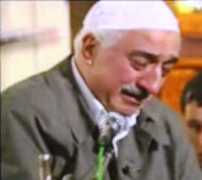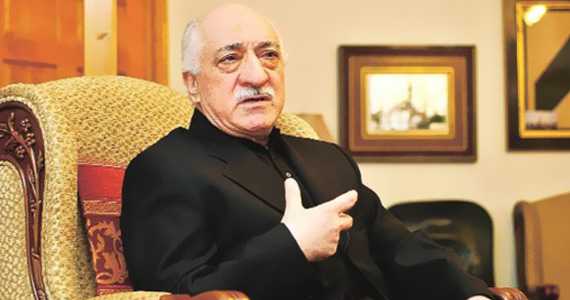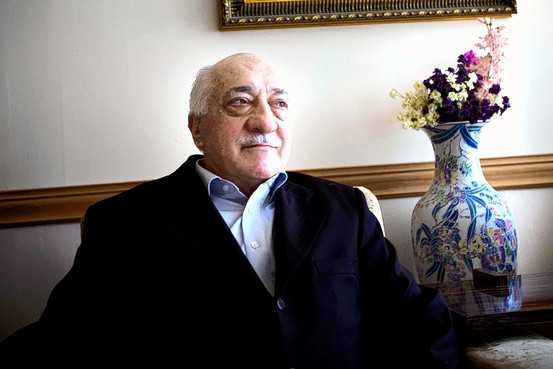
An ACT! for America Exclusive
by Guy Rodgers
www.actforamerica.org
For some time we have been researching a Turkish-based Islamist movement that has a significant network here in the United States. Given Turkey’s history of secular, democratic government, and some of the remarks made by President Obama in his recent speech there, many of our members and other readers will likely be surprised by what we have found.
I suspect that even many who are well-read on the issue of Islamism are unfamiliar with the Fethullah Gulen Community (FGC), a movement a February 2009 article in the respected Jane’s Islamic Affairs Analyst labeled “Turkey’s third power.” Indeed, the article noted in its Key Points: “Turkey’s Islamist Gulen movement, while a powerful political force, is largely an unfamiliar entity to the West.”
The FGC is named after Fethullah Gulen, a Turkish imam who now lives in the United States. He fled Turkey in 1998 to avoid prosecution on charges that he was attempting to undermine Turkey’s secular government with the objective of establish an Islamic government. Since Gulen’s arrival here the Department of Homeland Security tried to deport him, but he successfully fought the effort in federal court because it was ruled he was an individual with “extraordinary ability in the field of education” – although he has no formal education training.
The FGC emerged in Turkey in the 1970’s. According to the Jane’s Islamic Affairs Analyst piece, Gulen stated that “in order to reach the ideal Muslim society ‘every method and path is acceptable, [including] lying to people.’” This public acknowledgement of taqiyya (employing deception to advance Islam) is highly pertinent to Gulen’s activities here in the United States. A recent article in the Middle East Quarterly by Rachel Sharon-Kreskin titled “Fethullah Gulen’s Grand Ambition” sheds light on Gulen’s background:
Gülen was a student and follower of Sheikh Sa’id-i Kurdi (1878-1960), also known as Sa’id-i Nursi, the founder of the Islamist Nur (light) movement. After Turkey’s war of independence, Kurdi demanded, in an address to the new parliament, that the new republic be based on Islamic principles. He turned against Atatürk and his reforms and against the new modern, secular, Western republic.
Sharon-Kreskin documents how the FGC, in league with Turkey’s ruling party, Adalet ve Kalkinma Partisi (AKP), has been successful in gradually moving Turkey away from its secular democratic governance, towards an Islamist state governed by Shariah law, and reorienting itself toward Iran. What’s more, other evidence suggests that Gulen’s ultimate goal may well be the resurrection of the Ottoman Empire so as to reinstate the Islamic Caliph. Clearly this has immensely serious ramifications for geo-political affairs in the Middle East as well as for the continued rise of radical Islam throughout the world.
What makes Gulen particularly dangerous is his strategic and tactical means to achieving this goal. He oversees a worldwide network of businesses, schools, foundations and media outlets, with an estimated budget of 25 billion dollars. Here’s what Gulen had to say in a sermon in 1999 aired on Turkish television:
You must move in the arteries of the system without anyone noticing your existence until you reach all the power centers … until the conditions are ripe, they [the followers] must continue like this. If they do something prematurely, the world will crush our heads, and Muslims will suffer everywhere, like in the tragedies in Algeria, like in 1982 [in] Syria … like in the yearly disasters and tragedies in Egypt. The time is not yet right. You must wait for the time when you are complete and conditions are ripe, until we can shoulder the entire world and carry it … You must wait until such time as you have gotten all the state power, until you have brought to your side all the power of the constitutional institutions in Turkey … Until that time, any step taken would be too early-like breaking an egg without waiting the full forty days for it to hatch. It would be like killing the chick inside. The work to be done is [in] confronting the world. Now, I have expressed my feelings and thoughts to you all-in confidence … trusting your loyalty and secrecy. I know that when you leave here-[just] as you discard your empty juice boxes, you must discard the thoughts and the feelings that I expressed here.
Simply put, he is brilliantly and patiently employing taqiyya on a global scale, because this strategic approach is not confined to Turkey.
Here in the U.S. the FGC runs over 90 charter public schools in at least 20 states. This was brought to our attention by ACT! for America members who actually have relatives who teach in one of these schools, an illustration of the growing reach of ACT! for America’s “eyes and ears” across our country. For obvious reasons we cannot reveal the identity of our sources.
Our readers may be familiar with the numerous emails we have released regarding the operation of the Tarek ibn Zayed Academy (TiZA), a publicly funded charter school in Minnesota that is so blatantly Islamic in nature that the Minnesota Department of Education issued two citations against it and the ACLU is suing it. FGC schools appear to be very different, and reflect the Gulen’s exhortation to “move in the arteries of the system without anyone noticing your existence until you reach all the power centers…”
Indeed, the fact that so little has been written about the FGC schools here in the U.S., as well as the accolades that have been accorded the FGC as a model of “moderation” by some in our government, would appear to confirm that the FGC and its schools are doing an excellent job of heeding Gulen’s exhortation and masking their true intent.
During several discussions and emails with our sources inside FGC schools, I asked specifically if the schools promote Islam in the way that the TiZA school in Minnesota does. I was told that this was not the case in the schools these sources were familiar with. However, one particular school (and likely numerous others) appears to be in violation of state law because the school’s affidavit for its charter does not acknowledge that it is connected with a religious institution or group. In other words, those who chartered this school practiced taqiyya by hiding this fact. (Enterprising readers may want to research this with respect to FGC schools around the country. For a list of the FGC network in America and its schools, click here).
What’s more, the schools appear to be a source of recruitment for outside school activities sponsored by the FGC, such as summer camps, which would be in keeping with the pattern of recruitment of members and followers that FGC employs worldwide, according to both the Jane’s and Middle East Quarterly articles.
As a further example of the use of taqiyya, the Jane’s article gives examples of how FGC’s Turkish language media outlet Zaman runs stories with information and headlines that are missing from the English language media outlet Today’s Zaman. This practice of two different messages, one to the indigenous Islamic population and one to the West, is common in the Islamic world, and has led many in the West, including political leaders and academics, to be misled as to the true intentions of Islamists. In building a sophisticated and well-funded worldwide network, including a substantial presence here in the U.S., Fethullah Gulen is following in the footsteps and exhortations of Mohammed, who counseled patience and deception as a means of overcoming the infidel when the power of the infidel was greater than the power of the umma, the Muslim community. In a very real sense this is as or more sinister than the frontal assault strategy of Islamist organizations such as al Qaeda and Hamas, because, like the proverbial “frog in the kettle,” we are incrementally “boiled alive” without realizing it.
For years American Congress for Truth, and now its “sister” organization ACT! for America, have been ringing the alarm bells about what is variously known as “cultural jihad,” “creeping jihad,” “stealth jihad,” and “creeping shariah.” Much of Europe and Great Britain has been Islamized through this process, a process that invariably does not lead to peaceful coexistence between Muslims and non-Muslims, but leads to Islamic self-segregation, increased Islamist militancy and aggression, and the eventual forced imposition of Islamic shariah law within the society.
The FGC charter schools in America may outwardly appear innocuous, but they are serving a greater and long-range objective of Fethullah Gulen. We in the West need to be less gullible and more discerning when it comes to the elements of “stealth jihad” within our midst.
Guy Rodgers is Executive Director of ACT! for America.





 Reformer or Islamist? Researchers says that Gülen’s interpretation of Islam is closer to the conservative mainstream than anything else | Commentators like Yusuf Kanli are asking whether the Fethullahcilar even intend to revive the caliphate, slowly, step by step, using methods of secret indoctrination via schools, universities and the media.
Reformer or Islamist? Researchers says that Gülen’s interpretation of Islam is closer to the conservative mainstream than anything else | Commentators like Yusuf Kanli are asking whether the Fethullahcilar even intend to revive the caliphate, slowly, step by step, using methods of secret indoctrination via schools, universities and the media. Travelling the world on an interreligious mission for his network: Fethullah Gülen during his audience with Pope John Paul II | For its part, Prospect quickly published an article about the winner entitled “A modern Ottoman” in which it wrote that the winner of the poll was “the modern face of the Sufi Ottoman tradition.”
Travelling the world on an interreligious mission for his network: Fethullah Gülen during his audience with Pope John Paul II | For its part, Prospect quickly published an article about the winner entitled “A modern Ottoman” in which it wrote that the winner of the poll was “the modern face of the Sufi Ottoman tradition.” The building where the daily newspaper Zaman is published in Istanbul: the fact that Gülen’s movement has also established political and economic associations and has built up a media empire has generated a feeling of mistrust | In the years that followed, the number of Gülen supporters from Anatolia’s emerging middle class rocketed: the link between serving God and earning money appealed to what the European Scientific Institute, ESI, referred to as Turkey’s “Islamic Calvinists”.
The building where the daily newspaper Zaman is published in Istanbul: the fact that Gülen’s movement has also established political and economic associations and has built up a media empire has generated a feeling of mistrust | In the years that followed, the number of Gülen supporters from Anatolia’s emerging middle class rocketed: the link between serving God and earning money appealed to what the European Scientific Institute, ESI, referred to as Turkey’s “Islamic Calvinists”. Early 16th century miniature painting with a poem by Sufi mystic Rumi: According to Gülen, the great masters of Islamic mysticism showed the “path to true enlightenment through spirituality and love” | This, he continues, is why Necla Kelek, a German critic of Gülen, is so wrong when she describes the movement as a “non-transparent Islamist sect with a corporation structure”. “Anybody who accuses us of having a hidden agenda, is welcome to come and quiz us. We have nothing to hide,” says Gütasli.
Early 16th century miniature painting with a poem by Sufi mystic Rumi: According to Gülen, the great masters of Islamic mysticism showed the “path to true enlightenment through spirituality and love” | This, he continues, is why Necla Kelek, a German critic of Gülen, is so wrong when she describes the movement as a “non-transparent Islamist sect with a corporation structure”. “Anybody who accuses us of having a hidden agenda, is welcome to come and quiz us. We have nothing to hide,” says Gütasli.
